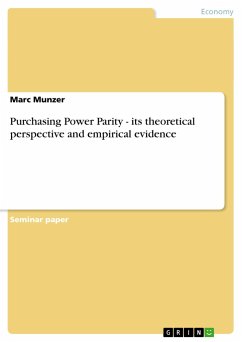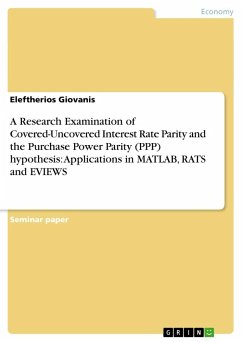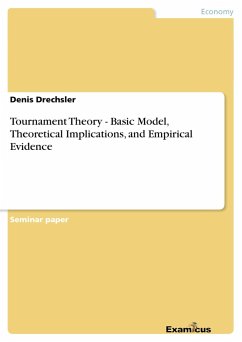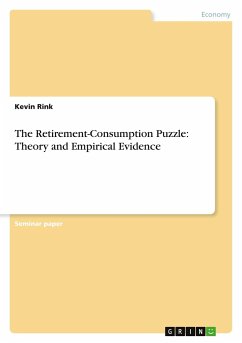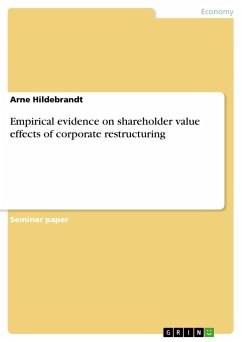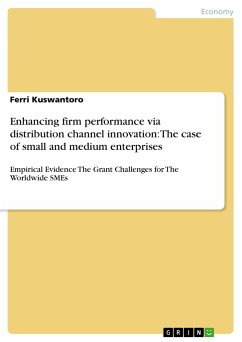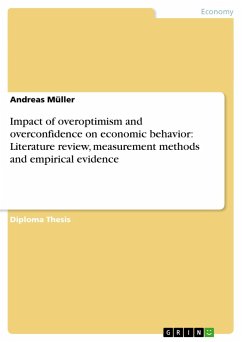Seminar paper from the year 2009 in the subject Business economics - Investment and Finance, grade: 1,3, University of Hull, language: English, abstract: The Swedish economist Gustav Cassel developed his theory of Purchasing Power Parity (henceforth PPP) more than 80 years. Ago, and today it is still an essential part of the framework for forecasting exchange rates, which includes parity conditions in international finance. International parity conditions imply purchasing power parity, the Fisher effect, the interest rate parity theory and the expectations theory. "They are the set of equilibrium relationships which should hold between product prices, interest rates, and spot and forward exchange rates assuming a freely floating exchange system." (Demirag and Goddard, 1994, 70) Unfortunately, these theories do not always work out in reality, especially in times of financial crisis. However, they give us a central understanding of how and why multinational business is related in the world. Sometimes, "the mistake is not always in the theory itself, but in the way it is interpreted or applied in practice" (Eitemann et.al., 2004, 133). This essay will take a detailed look at PPP, its theoretical perspective, and the empirical evidence for it.[...]

